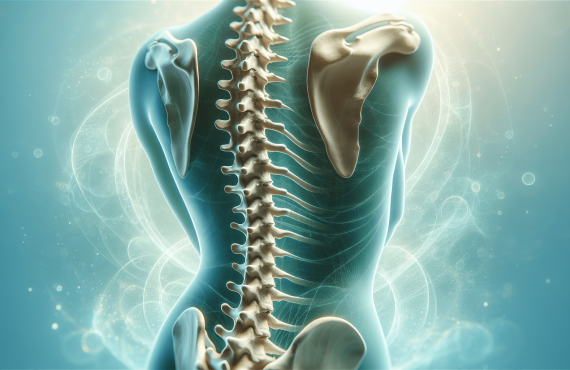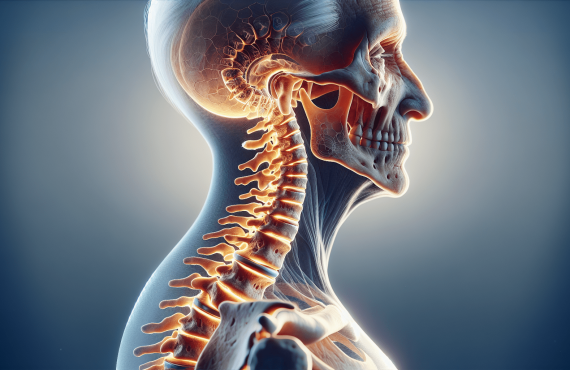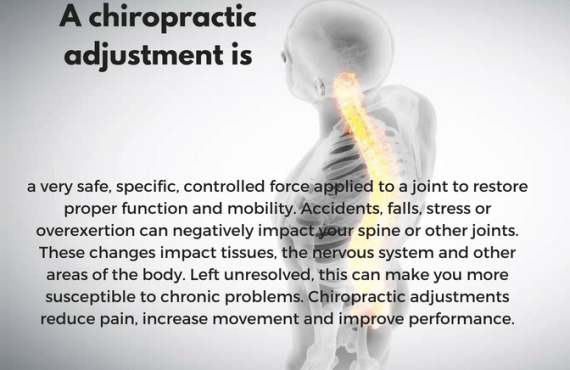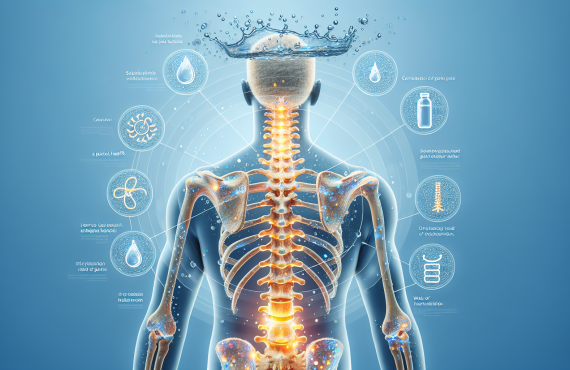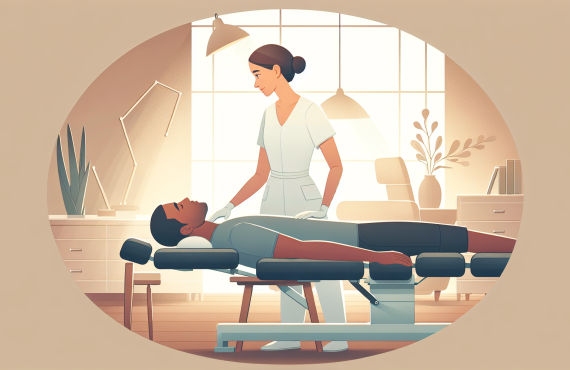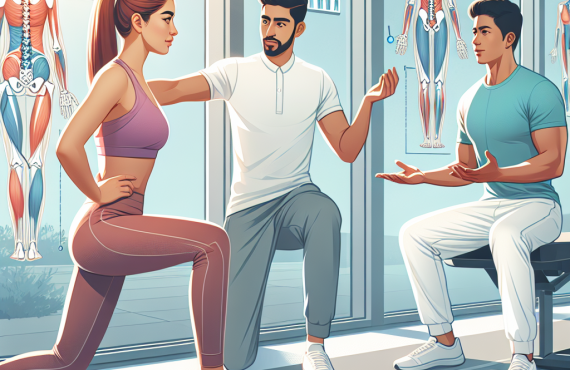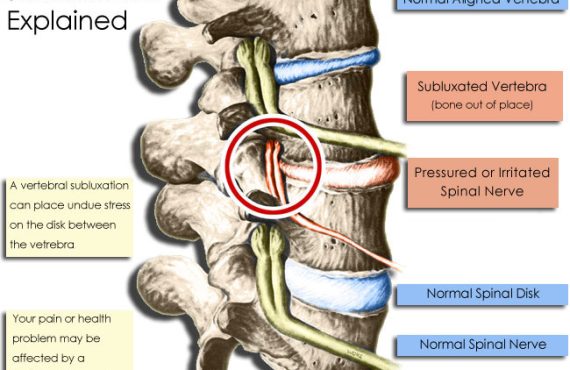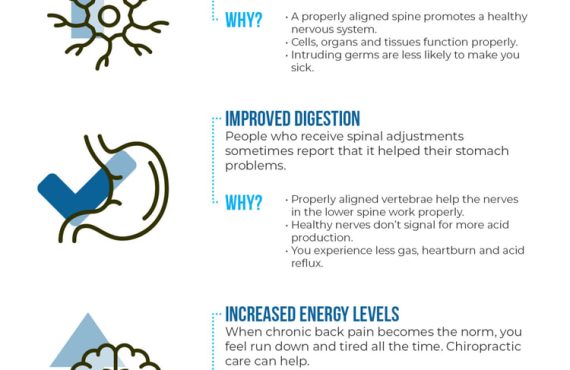Have you ever stopped to think about how our bodies support us every day? No, I’m not talking about your friends who send you funny cat videos to lift your spirits on a dreary Monday morning. I’m referring to our amazing spines—those incredible backbones that hold us upright, enable us to wave our arms around while telling wild weekend stories, and cart us from point A to B. The spine is central to almost every physical activity you indulge in, whether it’s stacking snacks too high on a plate or chasing your runaway trolley in the grocery store parking lot.

Table of Contents
Understanding Flexibility and Your Spine
Let’s start with a friendly reminder about the function of your spine. It’s more than just a series of bones stacked like wooden Jenga pieces that you’re hoping won’t accidentally collapse when you reach up to pick something off the top shelf. Your spine is a complex structure that includes vertebrae, discs, ligaments, and nerves working in concert to maintain balance, support your body weight, and allow a full range of motion. A flexible spine ensures smooth movement and helps prevent injuries, promoting overall well-being.
The Components of the Spine
It might seem like your spine has one job—keeping you upright. But it’s actually a multitasking marvel. Here’s a breakdown of its components:
-
Vertebrae: These individual bones protect the spinal cord and support our frame. They’re like a Big Ten football team—a sturdy defense here, a powerhouse offense there.
-
Intervertebral Discs: These are the cushions between the vertebrae, acting as shock absorbers. Think of them as a well-cushioned running shoe insert for your spine.
-
Ligaments and Muscles: These help in maintaining posture and facilitating movement. Pilates instructors and personal trainers owe their jobs to these silent strength-providing partners.
-
Nerves: The wiring system of the body that passes messages from the brain to the rest of the body. It’s like your personal delivery service, ensuring that signals are as quick as an email, but without the risk of going to the spam folder.
Why Flexibility Matters
Imagine trying to do somersaults in an inflatable sumo suit—it’s not pretty, and you likely won’t get far. A flexible spine is the antidote to such rigidity. With flexibility, your spine can adapt to various stresses and movements without causing harm. Remember, a pliable spine is a happy spine.
Flexible spinal health makes a significant impact on:
-
Movement: Improved agility and the ability to perform daily tasks with ease. Feel free to reenact old-school dance moves in your kitchen with minimal risk.
-
Posture: A flexible spine aids in developing better posture, reducing the risk of pain and discomfort. No more longing gazes at your ergonomic desk chair—you’ll be motivated to sit up straight without its help.
-
Injury Prevention: Enhances the body’s ability to withstand physiological stress and sudden movements, limiting the sprains and strains that threaten your weekend gardening plans.
Achieving Spinal Flexibility
Now you’re probably wondering, how do you achieve this blissful spinal state, akin to a yogi mastering the crow pose? Flexibility isn’t just a genetic lottery (sorry, Uncle Bob, and your perma-hunched back), but something you can actively cultivate through various practices and habits.
Stretching Practices
Stretching is the simplest way to boost spine flexibility. There’s no need to twist into a pretzel or emulate a Cirque du Soleil performance. Here are a few effective stretches:
-
Cat-Cow Stretch: Imagine yourself as both a relieved, stretching cat and an inquisitive cow! This gentle flow helps enhance flexibility and mobility.
-
Child’s Pose: This yoga staple stretches the spine and helps relieve tension. Bonus: it’s a perfect pose when you’d rather nestle into the floor and hide from the world.
-
Spinal Twist: The twist helps improve flexibility while also stretching the muscles along the spine.
Regular stretching routines can make a world of difference. Just think of it as the daily espresso shot but for your spine.
Exercise Routines
Incorporating exercises tailored for spinal flexibility can be transformative. Here are some you should consider:
-
Pilates: This focuses on core strength, encouraging a strong support system for your spine.
-
Yoga: Not only does it foster flexibility, but it also champions a mental calmness much needed when you find your favorite snack is unavailable.
-
Swimming: This low-impact exercise lets you build strength like Michael Phelps without the burden of gravity testing your patience.
Staying Active
Regular activity isn’t just good for keeping your TV-watching habits in check. It engages those vital organs, including your spine. Keeping active reduces stiffness, keeps the muscles limber, and boosts overall spinal health. Think of it as giving your spine a new pair of dancing shoes.
Healthy Ergonomics
Standing desks, lumbar support pillows, or even the strategically placed fidget spinner can help combat poor spine habits that many desk-bound workers develop. Adjust your work environment so your spine is supported and aligned—your spine deserves a VIP seat.
Common Misconceptions
There’s a lot of misleading information out there about spinal health. One unfounded belief is that flexibility and strength are mutually exclusive. Well, they’re more like Batman and Robin than oil and water. You need one for the other to save the day (or at least your posture).
Another misconception is that flexibility comes naturally with age. Actually, it’s the opposite. Much like that giant chocolate bar you bought, it diminishes over time unless you actively work on maintaining it.
Yet another belief is that spinal adjustments are harmful. In reality, receiving care from a licensed chiropractor can help maintain and improve spinal health. Speaking of which, if you’re in the Pensacola area, consider reaching out to Henry Chiropractic, located at 1823 N 9th Ave, Pensacola, FL 32503. Dr. Craig Henry and Dr. Aaron Hixon are seasoned professionals who cater to the needs of individuals seeking wellness and pain relief—whether it’s a crick in the neck from an impromptu nap or wanting to live life fully without back pain interruptions.
Signs Your Spine Needs Flexibility Boost
Are your favorite activities becoming pains (literally and figuratively)? Here are some signs that your spine might need a little TLC:
-
Persistent Back Pain: A relentless, rude reminder that your spine may need more flexibility.
-
Reduced Mobility: Feeling like the Tin Man before an oil bath? Your spine could be the culprit.
-
Poor Posture: Slouchy and droopy aren’t personality traits, right? Enhance your spine’s flexibility to naturally correct posture.

Lifestyle Changes for Better Spinal Health
Changing habits isn’t easy—just ask anyone who’s tried switching from coffee to herbal tea. Yet, small lifestyle adjustments can significantly enhance spinal health:
Nutrition
Feed your body what it needs—calcium-rich foods, omega-3 fatty acids, and vitamin D. These help in maintaining strong bones and reduce inflammation. Consider them a metaphorical high-five to your spine.
Hydration
Keep hydrated! Those intervertebral discs need fluid to maintain their cushioning effect. In other words, prevent your spine from becoming a deflated balloon animal from the county fair.
Mindfulness and Stress Management
Stress can lead to muscle tension and back pain. Consider mindfulness techniques or simple breathing exercises. Your spine deserves this zen-out time.
Embrace Professional Chiropractic Care
Regular visits to a chiropractor, like Dr. Craig Henry or Dr. Aaron Hixon at Henry Chiropractic, can help identify and address misalignments, offering relief and improving overall spine function.
Conclusion: Flex Your Spine, Live Well
Forgetting your spine is like ignoring the foundation of a house. Achieving and maintaining a flexible spine is essential for a vibrant, pain-free life. With proper care and timely chiropractic visits, you can embrace new movements, posture habits, and a healthier lifestyle.
So, are you ready to bend without breaking? As Dr. Craig Henry and Dr. Aaron Hixon emphasize, spinal health is about more than just back pain; it’s about well-being in every aspect of your life.
Because when it comes to life, shouldn’t you be doing more than just making sure your feet are comfortable? Let’s give your spine some love too.






























